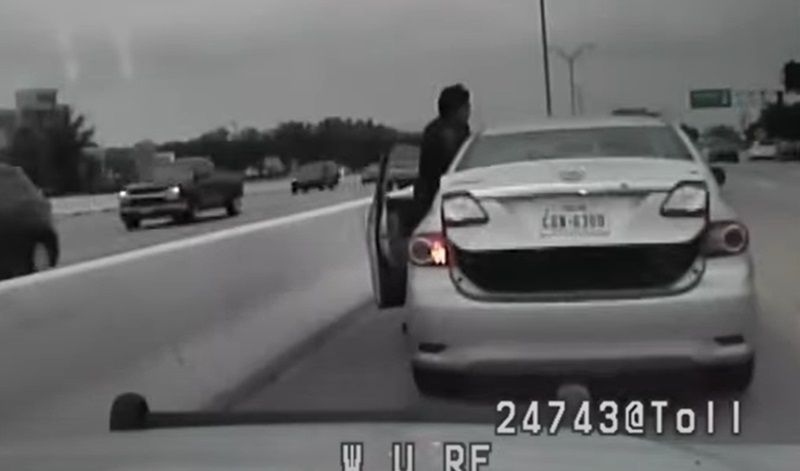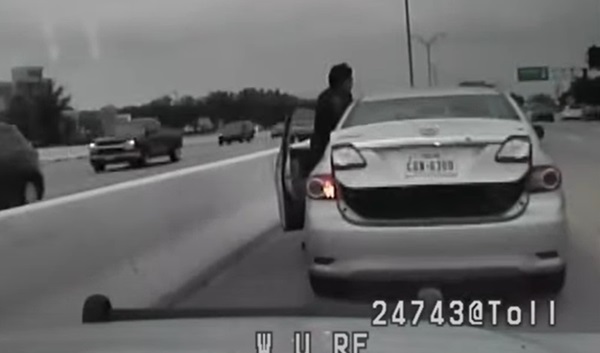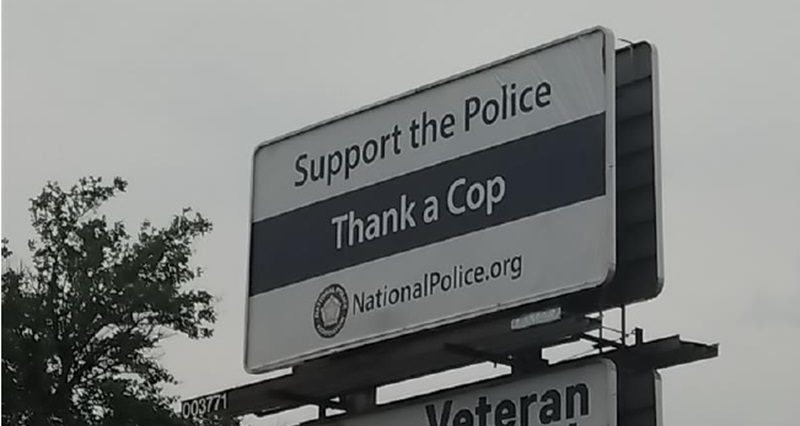

The case of Barnes v. Felix poses imminent jeopardy to law enforcement officers nationwide. The U.S. Supreme Court has agreed to hear this case, which challenges the “moment of threat” doctrine, a legal framework used to assess the reasonableness of an officer’s use of force against a threat to their life. The National Police Association (NPA) joined the United Coalition of Public Safety (UCOPS) in asking the Court to rule in favor of the doctrine and the defendant, Harris County (TX) Deputy Constable Roberto Felix Jr.
On April 28, 2016, Harris County (TX) Deputy Constable Roberto Felix Jr. initiated a traffic stop on Ashtian Barnes. Instead of pulling over to the right-hand shoulder, Barnes stopped in the left lane close to the concrete highway divider. With traffic flowing in the adjacent lane, Felix approached from the driver’s side. Barnes claimed not to have a driver’s license with him but continued digging around the car anyway despite the lawful order Felix issued to stop. When Felix issued the additional lawful order for Barnes to exit the vehicle for officer safety, Barnes instead put the car in drive and accelerated. Fearing being run over by the car or dragged or crushed against the concrete barrier Felix jumped onto the door sill and ordered Barnes to not move. Barnes again refused to comply and continued to accelerate at which point Felix fired two shots at Barnes resulting in Barnes being killed and the car coming to a stop. The event was recorded by the patrol vehicle’s dash cam.
The plaintiffs want the U.S. Supreme Court to reject the moment of threat doctrine and instead apply a national “totality of the circumstances” doctrine to review officers’ use of force. This would be an examination of officers’ use of force based on actions before their lives are in danger instead of when their lives are in danger. The petitioner and the usual assortment of anti-law enforcement organizations that have filed amicus briefs in support of the lawsuit believe there are magic de-escalation words Felix could have uttered to make Barnes comply with his lawful orders. None of these parties ever explain the magic de-escalation words, but they are nonetheless adamant that violent crime is the fault of the officer, not the criminal.
Nor do the supporters of Barnes acknowledge that officers routinely have to interact with individuals on drugs or with a mental illness. Holding police officers accountable for the unpredictable actions of individuals under the influence of drugs or experiencing mental health crises undermines law enforcement’s ability to protect society, as it imposes unreasonable expectations on officers facing volatile and dangerous situations.
NPA spokesperson Sgt. Betsy Brantner Smith stated, “The proposal to introduce an “officer-created danger” rule is an attempt to shift responsibility away from the acts of suspects and onto those of officers. Such a standard would increase officers second-guessing their every action and increase lawlessness, as criminals would become aware of the hesitation instilled in those sworn to apprehend them.”
The National Police Association and the United Coalition of Public Safety are represented by Robert S. Lafferrandre and Jeffrey C. Hendrickson of Pierce Couch Hendrickson Baysinger & Green, L.L.P., in Oklahoma City, Oklahoma. The brief can be read here.
The National Police Association (NPA) is a nonprofit organization supporting law enforcement through advocacy, education, and law. For more information, visit NationalPolice.org.
###






